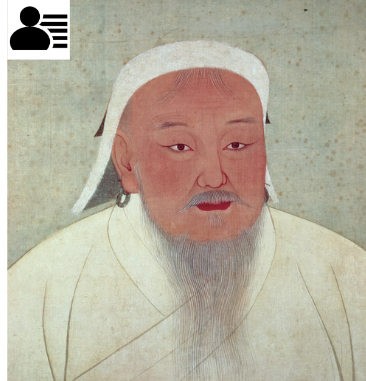
Advertisements
Genghis Khan Cause Of Death – Genghis Khan, born Temüjin around 1162, is one of history’s most formidable and enigmatic figures. As the founder and first Khan of the Mongol Empire, he forged the largest contiguous empire in history, a legacy that still influences the world today. This post delves into the multifaceted aspects of Genghis Khan’s life, from his cause of death and his net worth to his physical stature and the massive death toll attributed to his conquests.
Who is Genghis Khan?
Genghis Khan, originally named Temüjin, was born circa 1162 in the steppes of Mongolia. By 1206, he had united the Mongol tribes and assumed the title of Genghis Khan, meaning “universal ruler.” His leadership and military strategies transformed the Mongol Empire into a dominant force, conquering vast territories across China and Central Asia. His empire’s rapid expansion was marked by brutal conquests and innovative governance that left an indelible mark on world history.
Genghis Khan Cause of Death
Genghis Khan died in 1227, but the exact cause of his death remains a subject of speculation and myth. The most widely accepted account suggests he succumbed to injuries sustained from a fall off his horse. However, other sources propose a variety of causes ranging from malaria to an arrow wound. A more sensational yet dubious tale even claims he was murdered while attempting to assault a Chinese princess. Despite the uncertainty, his death marked the end of an era but not the collapse of his empire, which continued to thrive under his successors.
Genghis Khan Net Worth
Estimating Genghis Khan’s net worth in contemporary terms is a complex task due to the lack of traditional wealth measures from his time. However, if adjusted for modern-day inflation, his wealth could be valued at approximately $150 trillion. This staggering figure reflects the vast resources and territories he controlled, making him one of the wealthiest individuals in history.
Genghis Khan Height
Historical records on Genghis Khan’s height are inconsistent, with estimates ranging from 5 feet to as tall as 6 feet 2 inches. The lack of definitive measurements is due to the limited and often anecdotal nature of the sources. Regardless of his actual height, Genghis Khan’s towering legacy looms large in the annals of history.
Genghis Khan Kill Count
Genghis Khan’s military campaigns were notoriously brutal, resulting in an estimated 40 million deaths. This staggering number includes soldiers and civilians alike, reflecting the widespread devastation his conquests brought to the regions he invaded. His strategies often involved psychological warfare, using fear and terror to compel submission and reduce resistance.
Genghis Khan’s Legacy
Genghis Khan’s legacy is multifaceted, characterized by both his unparalleled military achievements and his impact on the cultural and political landscapes of Eurasia. His conquests facilitated the exchange of ideas, technologies, and goods across the Silk Road, significantly influencing the development of civilizations. Moreover, his legal and administrative reforms, including the introduction of a meritocratic system and religious tolerance, laid the groundwork for modern governance practices.
FAQs
1. What was Genghis Khan’s real name? Genghis Khan’s birth name was Temüjin.
2. How did Genghis Khan unite the Mongol tribes? Genghis Khan united the Mongol tribes through a combination of strategic alliances, military prowess, and a charismatic leadership style that promoted loyalty and unity.
3. What territories did Genghis Khan conquer? Genghis Khan’s empire stretched from China to Central Asia, covering vast regions including parts of modern-day Russia, Mongolia, China, Korea, and more.
4. How did Genghis Khan’s empire impact trade? His conquests greatly enhanced the safety and stability of the Silk Road, facilitating trade and cultural exchange between the East and West.
5. Was Genghis Khan a ruthless leader? Genghis Khan is often described as ruthless due to his military tactics and the high death toll of his campaigns. However, he also implemented progressive policies and innovations that benefited his empire.
Conclusion
Genghis Khan remains a towering figure in history, known for his unparalleled conquests and enduring influence on the world. While the exact details of his death, height, and wealth may be shrouded in mystery, his legacy as a unifier, conqueror, and innovative leader is undeniable. His life and achievements continue to captivate historians and enthusiasts alike, offering valuable insights into the complexities of human history.

Leave a Reply